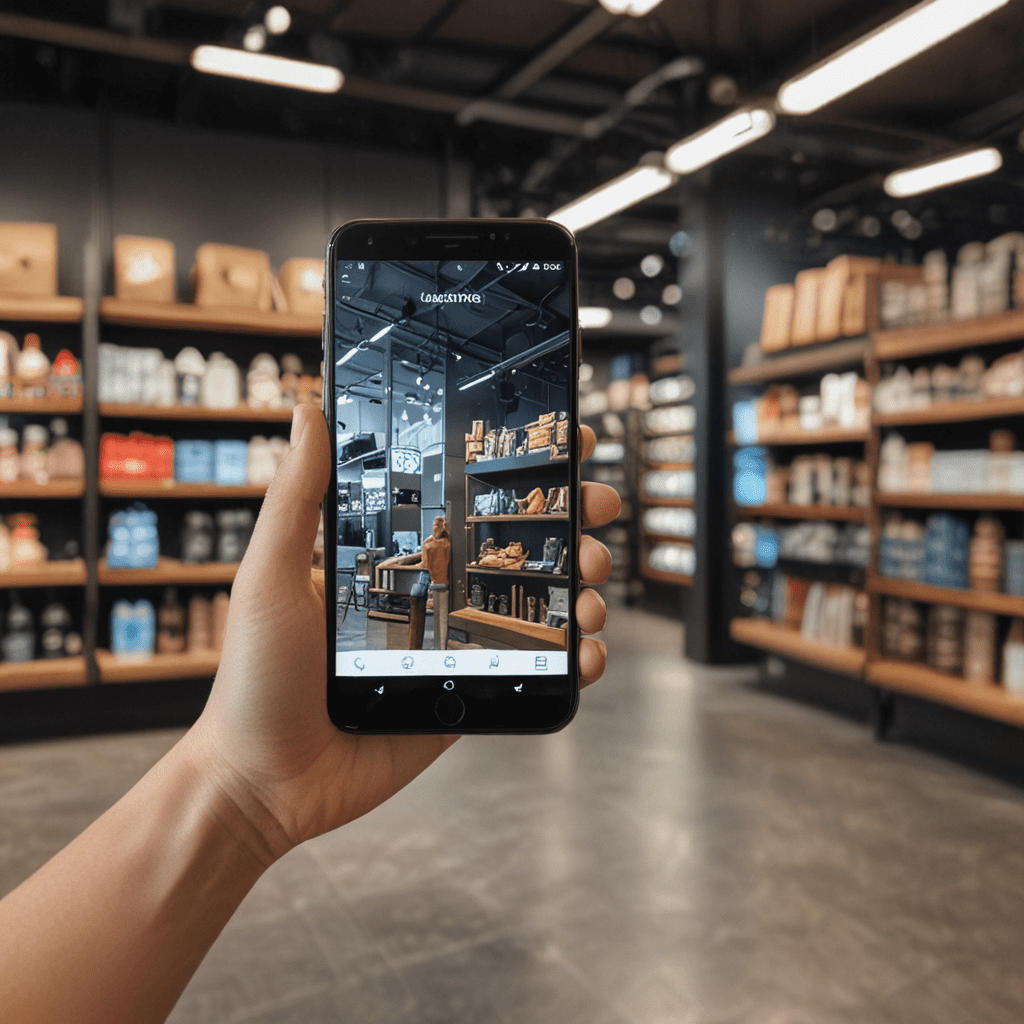
Introduction
The retail industry is undergoing a significant transformation as mobile devices become increasingly ubiquitous. Retailers are recognizing the importance of mobile app development to enhance the customer experience and drive sales growth. A well-designed mobile app can provide numerous benefits to retailers, including improved customer engagement, personalized shopping experiences, and increased conversion rates.
Benefits of Mobile Apps for Retailers
There are numerous benefits that retailers can gain from developing a mobile app. Some of the key advantages include:
- Increased customer engagement: Mobile apps provide a constant channel of communication between retailers and their customers. Through push notifications, in-app messaging, and other features, retailers can keep customers informed about new products, promotions, and events.
- Personalized shopping experiences: Mobile apps allow retailers to collect data about their customers' preferences and behavior. This data can be used to personalize the shopping experience, such as by providing tailored product recommendations and offering relevant discounts.
- Increased conversion rates: Mobile apps can make it easier for customers to make purchases. By providing a seamless checkout process and offering convenient payment options, retailers can increase their conversion rates.
- Improved customer service: Mobile apps can provide a convenient way for customers to contact customer service. Through in-app chat, email, or phone support, retailers can quickly resolve customer issues and improve satisfaction.
- Enhanced brand loyalty: Mobile apps can help retailers build stronger relationships with their customers. By providing a positive and engaging app experience, retailers can encourage customers to become loyal brand advocates.
Understanding Customer Needs and Preferences
To develop an effective mobile app, retailers must first understand the needs and preferences of their customers. This can be done through market research, customer surveys, and user testing. Some important factors to consider when understanding customer needs include:
- Shopping habits: What are the typical shopping behaviors of your customers? Do they prefer to browse in-store, online, or both? What are their preferred payment methods?
- Demographic information: Who are your target customers? What are their age, gender, and location?
- Technology usage: What devices do your customers use? Are they comfortable using mobile apps?
- Pain points: What are the biggest pain points that your customers experience when shopping? How can your app address these pain points?
By understanding the needs and preferences of your customers, you can develop a mobile app that is tailored to their specific requirements.
6. Integrating Mobile Payments and Loyalty Programs
Mobile apps can make it easier for customers to make purchases and earn rewards. By integrating mobile payments and loyalty programs, retailers can streamline the checkout process and encourage repeat business.
Mobile payments allow customers to pay for their purchases using their smartphone. This is a convenient and secure way to pay, and it can also help to reduce checkout lines. Loyalty programs reward customers for their repeat business. By offering points, discounts, or other perks, retailers can encourage customers to come back and shop again.
7. Leveraging GPS and Augmented Reality
GPS and augmented reality (AR) can be used to enhance the mobile shopping experience. GPS can be used to provide customers with directions to the nearest store or to help them find items in-store. AR can be used to overlay digital content on the real world, such as product information or interactive experiences.
By leveraging GPS and AR, retailers can create more engaging and informative mobile apps. This can help to drive sales and improve customer satisfaction.
8. Building a Strong Mobile Commerce Platform
The mobile commerce platform is the backbone of any mobile app. It is responsible for handling all of the transactions and data that flows through the app. A strong mobile commerce platform is essential for providing a seamless and secure shopping experience.
When choosing a mobile commerce platform, retailers should consider factors such as scalability, security, and ease of use. The platform should be able to handle the expected volume of traffic and it should be secure enough to protect customer data. It should also be easy to use, so that retailers can quickly and easily add new products and features to their app.
9. Analyzing App Data for Insights and Improvements
App data can provide valuable insights into customer behavior and preferences. By analyzing this data, retailers can identify areas for improvement and make changes to their app accordingly.
Some of the key metrics that retailers should track include:
- App downloads: How many people have downloaded your app?
- App usage: How often do people use your app?
- Conversion rates: What percentage of people who use your app make a purchase?
- Customer feedback: What do people say about your app in reviews?
By tracking these metrics, retailers can get a better understanding of how their app is performing and make changes to improve the user experience.
10. Conclusion: The Future of Retail App Development
Mobile app development is essential for retailers who want to succeed in the digital age. By providing a convenient and engaging shopping experience, mobile apps can help retailers to drive sales, build customer loyalty, and stay ahead of the competition.
The future of retail app development is bright. As technology continues to evolve, we can expect to see even more innovative and engaging mobile apps that transform the way we shop.
FAQ
Q: What are the benefits of mobile apps for retailers?
A: Mobile apps can provide numerous benefits to retailers, including improved customer engagement, personalized shopping experiences, increased conversion rates, improved customer service, and enhanced brand loyalty.
Q: How can retailers understand the needs and preferences of their customers?
A: Retailers can understand the needs and preferences of their customers through market research, customer surveys, and user testing.
Q: What are some of the key features that retailers should include in their mobile apps?
A: Some of the key features that retailers should include in their mobile apps include mobile payments, loyalty programs, GPS, AR, and a strong mobile commerce platform.
Q: How can retailers analyze app data to improve their app?
A: Retailers can analyze app data to identify areas for improvement and make changes to their app accordingly. Some of the key metrics that retailers should track include app downloads, app usage, conversion rates, and customer feedback.

